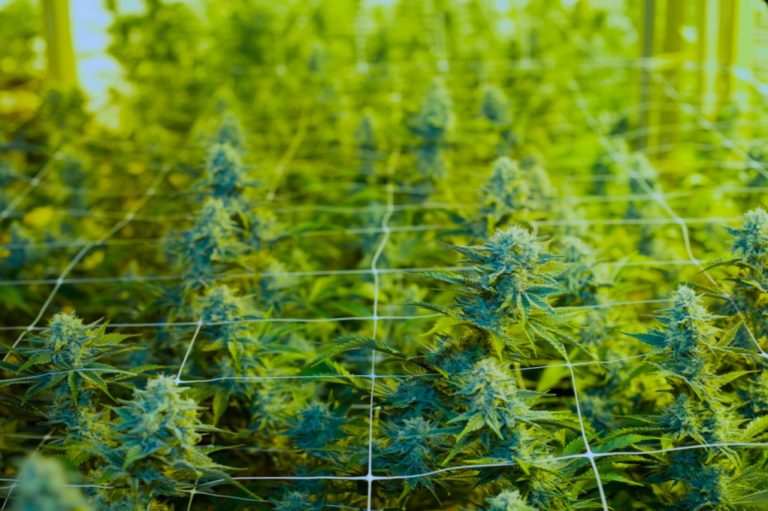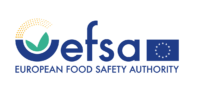
[ad_1]
This is Part Two of a four-part series discussing European cannabis regulations. Click here for Part One. Part Two analyzes the differences between the UK, the EU and the US. Part Three, coming next week, dives into dosage, approvals and more. Stay tuned for more.
EU Regulatory Environment
We Europeans look with envy at the American market and wonder, why can’t we be more like that? The differences between the American market, the UK and the EU economic zone couldn’t be more different, but changes seem to be on the horizon. While both the UK and the EU apply the Novel Food law, implementation varies significantly.
In the EU, applications are submitted to the EU Commission, and approval can take up to nine months – just for approval of the application – not the testing that will follow. And while the application carries no fee, collecting the required data just to make the application can be expensive, and can run into six figures or higher. Once the application is approved, there may still be data gaps and uncertainties, with toxicology testing that can take years to complete, and ultimately must be approved and validated by EFSA (European Food Safety Authority). The required toxicology testing is where things get really expensive, with both the EIHA (European Industrial Hemp Association) and EFSA estimating costs around €3.5 million.
 The EFSA’s Panel on Nutrition, Novel Foods and Food Allergens (NDA) has received 19 applications thus far for CBD as a novel food, with more in the pipeline. According to their website, NDA chair Prof. Dominique Turck reported that they “have identified several hazards related to CBD intake” and that many data gaps need filling before evaluations can go ahead. However, she concluded, “It is important to stress that we have not concluded that CBD is unsafe as food.”
The EFSA’s Panel on Nutrition, Novel Foods and Food Allergens (NDA) has received 19 applications thus far for CBD as a novel food, with more in the pipeline. According to their website, NDA chair Prof. Dominique Turck reported that they “have identified several hazards related to CBD intake” and that many data gaps need filling before evaluations can go ahead. However, she concluded, “It is important to stress that we have not concluded that CBD is unsafe as food.”
As always, with food and drug reviews, it is up to the applicant to prove that a product is safe for human consumption. And for the EU Commission, EFSA is conclusive. And while initial testing is with animals, it also includes human testing, which helps explain the high cost.
At present, the EFSA has been unconvinced by the applications submitted so far, and seeks more data regarding the effect of CBD on the liver, gastrointestinal tract, endocrine system, nervous system and on people’s psychological well-being, as well as the impact on human reproduction.
Thus, in 2019, the EIHA formed a German corporation, the “EIHA projects GmbH”, formed for the purpose of pooling partners money to pay for the application and toxicity testing. The Novel Food applications (NFAs) for CBD isolate and synthetic CBD were submitted on November 4, 2022 and full spectrum will follow in April/May of 2023. It should be noted that the application for synthetic CBD has been completely dropped as no testing was ever preformed.
The applications must be reinforced by a series of tox studies under the auspices of the EFSA and for the UK, the FSA. The EFSA will start the risk assessment as soon as the suitability check is performed. The suitability check is a process performed by EFSA to make sure that they have enough data to perform the risk assessment. According to their webpage, the risk assessment can take nine months.
In the case of the application put forth by the EIHA projects GmbH, the CBD isolate dossier will be submitted to the EFSA in September and enter the risk assessment phase. In this phase, the EFSA will go over the data and can ask for more data, should they feel it necessary. They are allowed 9 months to complete this task and submit their recommendations to the EU commission for a 27-member vote, whereby the EIHA projects GmbH application will be valid and legally binding. The EIHA projects GmbH is expecting a validation during the course of 2024. This is a huge game changer!
The application for Full Spectrum distillate should be readied by the end of 2023, whereby the EFSA should be finished with the risk assessment near the end 2024. As Full Spectrum takes into account minor cannabinoid as well as limited THC, it is more complex. It should be noted, that testing full spectrum distillate with a 0.2% THC limit, tests the limit for how much THC can be ingested by humans without side effects. This study is unprecedented and might well have an enormous impact on the issue of THC and its possible future legalization. It is also costing a further one million euros to bring to fruition.
The UK Regulatory Approach
The UK Novel Food approach differs greatly from the EU’s, which has both strengths and weaknesses. What makes the UK CBD market so robust is that the FSA allows products to be sold as long as they were on the market prior to February 13, 2020 and are linked to applications submitted before March 31, 2021. As a result, the FSA was flooded with applications – many later denied on technical grounds, in great part because they didn’t meet these terms. Currently, some 11,000 products worth a projected 1 billion GBP in revenue remain on the FSA list, having passed pre-validation while the FSA awaits the final toxicology report. Only 400 CBD products have been culled from the list, but to date, not a single application has yet been approved. Pre-validation status is incumbent upon a toxicology report, and it remains to be seen how many companies are able to produce such a report.
Important to note is that due to Brexit, a UK validation when it does come, will not be valid in the EU, but products with an EU application accepted on the Union list will be valid in the UK.
 Still with a projected 1 billion GBP at stake, it is easy to why UK CBD manufacturers work to appease the FSA despite the regulatory hurdles. By keeping the door open, the UK has managed to keep investors interested in the CBD market and the public safe from unmonitored products.
Still with a projected 1 billion GBP at stake, it is easy to why UK CBD manufacturers work to appease the FSA despite the regulatory hurdles. By keeping the door open, the UK has managed to keep investors interested in the CBD market and the public safe from unmonitored products.
This is certainly not the case in the EU, where despite a smattering of products still ducking the authorities, the EU market remains thin by comparison. Their approach has stymied growth compared to the UK where robust Novel Food regulation is in place, but approached differently.
At present, a market comparison of the EU to the UK or North America seems bleak, at least for now, but following approval, future EU-wide distribution could be highly profitable. As we inch closer to a Novel Food listing, the European market may yet prove to be one of the largest markets for the safest CBD products in the world.
The American Market
Still, it is the American market that makes our mouth water; where oils, tinctures, candies, cakes, and drinks with every cannabinoid from CBD to Delta 9, Delta 8, and HHC are available and producers are on their way to becoming millionaires. With a market currently estimated at $6 billion, forecasts reach upwards of $16 billion by 2026.
 And the health-related concerns, the testing requirements? Are these limited to the UK and the EU? Let’s take a closer look! A mood of caution is emerging in the American cannabis market, that includes producers and lawmakers alike, who are pushing for stricter laws and enforcement.
And the health-related concerns, the testing requirements? Are these limited to the UK and the EU? Let’s take a closer look! A mood of caution is emerging in the American cannabis market, that includes producers and lawmakers alike, who are pushing for stricter laws and enforcement.
In America, the FDA (Food and Drug Administration) has alerted the public to CBD’s potential harmful side effects on their website and hope to force congress to deal with the issue.
Many of their concerns validate those of the FSA and the EFSA. For example: on their website the FDA makes a reference to only one CBD product that has been approved: a medicine called Epidiolex. The FDA cites the review of the Epidiolex’s application in 2018 when they identified certain safety risks, including potential for liver damage. The EFSA requires testing on the same issue.
[ad_2]
Source link